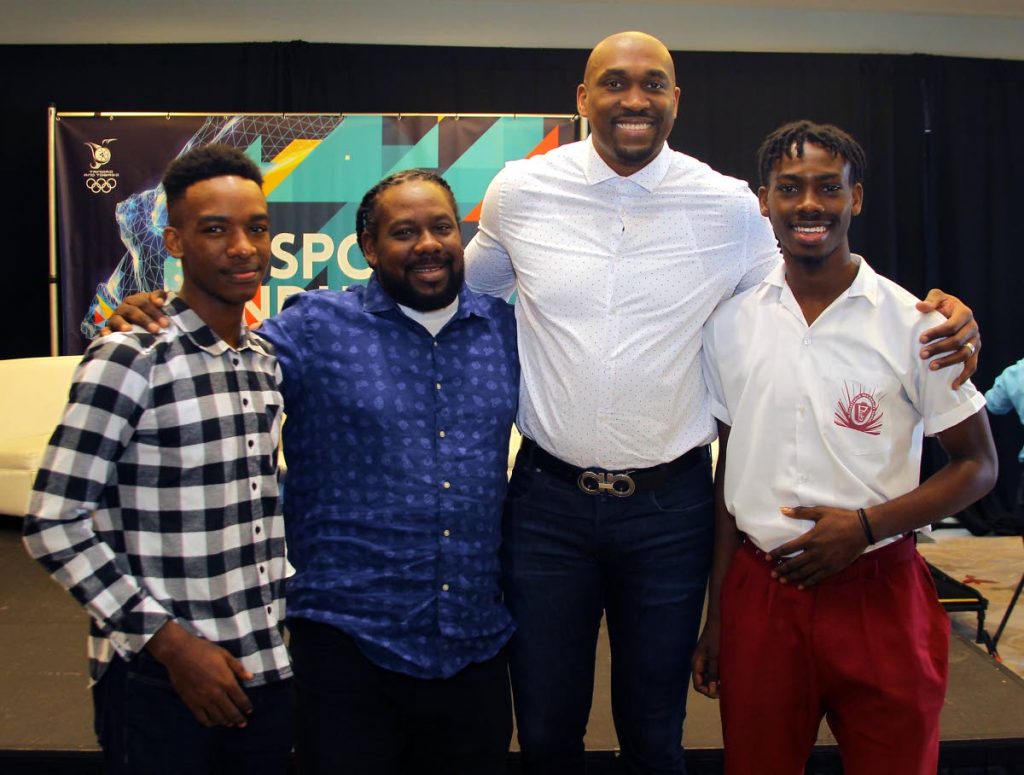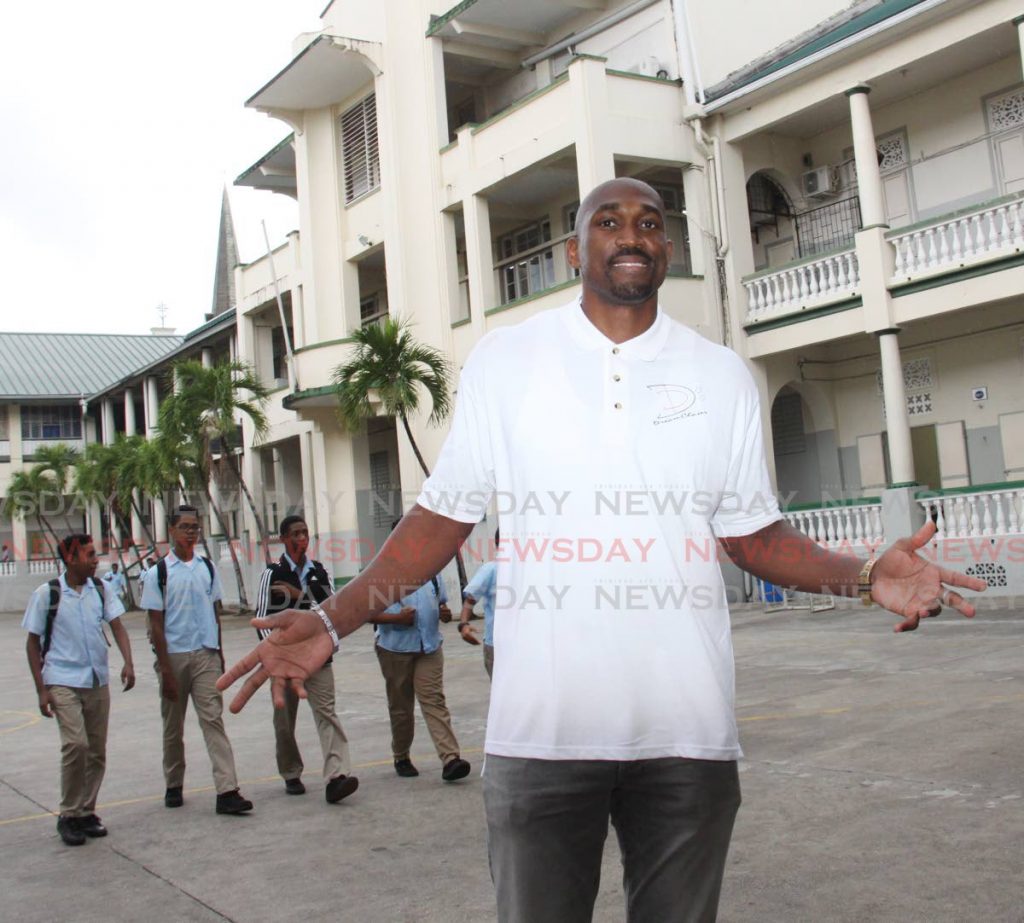Sport can make money

There is money to be made in sport, from the individual, administrative and commercial levels, and it starts with viewing sport as more than just a game.
Take that valuable advice from retired professional basketball player, Kibwe Trim, who captained TT at the junior and senior levels, and has since shifted his focus to business and philanthropic endeavours, both of which are closely tied with sports.
Trim, a 36-year-old proud past student of St Mary's College, featured among the speakers and panellists at the TT Olympic Committee (TTOC) Sports Industry TT Conference, at the Hyatt Regency, Port of Spain, last week.
In its fifth year, the conference had the theme: Sport is big business – towards a viable commercial model for TT Sport Industry.
The business of sport starts with the mindset followed by preparation and branding, Trim told an audience of local and foreign stakeholders in sports and sports business.
"I know there are many different aspects of how we could make sports viable, commercially profitable, but (I decided) to focus on three things that came to my mind immediately when talking about this theme," he said.
"The first thing that I thought about was mindset. There is a cultural mindset in TT that sports is just a game. I am not sure how that goes regionally in the rest of the Caribbean, but growing up here, that’s what I saw."
Trim is CEO of 5StarPros Management, a sports management company, and founder of DreamChaser International Foundation, a non-profit organisation, providing tutoring and mentoring services and financial aid to less fortunate children in the Caribbean and across four continents.
The right mindset is crucial for a playing career, he noted, and is almost always rewarded.
"Sport is indeed a big business. When you're talking about Lebron (James), we are talking about a kid from the slums in Akron (Ohio). (He was) raised in a single parent home and has now transformed his life, the life of his immediate family and the life of generations to come," said Trim.

The other crucial components to success, he added, were preparation and branding.
With preparation comes investment, he suggested, saying, "We are not only talking about spending time and money on actually making sure athletes hone their skills, but we are also talking about things like physical therapy, acupuncture, nutrition. Your body is the machine that fuels the sport."
Trim spoke at length about the importance of branding in the sports business industry.
"LA Lakers is a brand. Boston Celtics is a brand. Duke University Blue Devils is a brand. TT Soca Warriors is a brand," he said.
"The brand is how sporting organisations identify themselves. Organisations spend millions of dollars on their marketing department to make sure that their brand is refined. Their brand communicates to the investors and to the sponsors," he continued.
"Their brand brings in the community that supports them, so branding is very important as far as the influence in profitability."
Trim's address followed that of Brian Lewis, president of the TTOC, and host of the forum. Each iteration over the last five years focuses on a different theme as it relates to the business of sport.
Even prior to his first term as TTOC president, Lewis has for years promoted and advocated for self-sufficiency among clubs, national sporting organisations and sports governing bodies, partly by encouraging the corporate community not to wait for athletes to achieve before supporting them.
In his remarks, he echoed his position, saying, "If in 2020 we still continue to see headlines every day about what the government didn't do or not doing or should do as it relates to using (the state) as an ATM, then what we have been doing for the past five years (at this conference) is moving us away from that thinking (of self-determination). And if we aren't making progress, then the reality is that this conference really is wasting time."
The conference featured a diverse group of respected stakeholders across various sectors in sport administration, business, finance and other sectors, all of whom, he said, have one thing in common.
"They don't rely or depend on government or anybody to determine how they frame, shape, develop and maximise their business opportunities," he said.
Lewis would preface Trim's remarks on placing value on an individual or organisation's brand by saying, "For those who are involved in business, whether it is called a hustle or multiple revenue streams, it's about how can we deliver value and value in a way that will pull people towards what sport can offer. I don't know many entrepreneurs who rely on government or allow government to dictate their market, their ideas and their approach."
Lewis ended with an unattributed quote from a business magazine. He said, "It is not the resources you have or don't have, but it is how resourceful you are. It is time we become very resourceful in sport."

Comments
"Sport can make money"